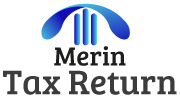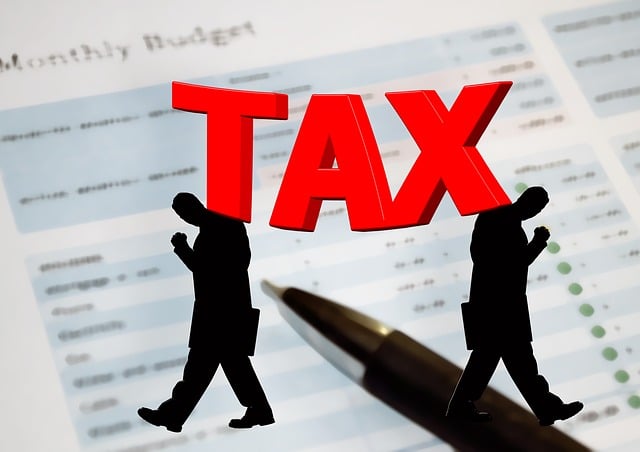Understanding the Cost of Tax Returns in the UK: A Comprehensive Guide
Tax returns are an essential part of financial life for individuals and businesses in the UK. Whether you’re self-employed, a company director, or have multiple income streams, filing a tax return is often a legal requirement. However, the cost of preparing and submitting a tax return can vary significantly depending on several factors. In this blog, we’ll explore the costs associated with tax returns in the UK, what influences these costs, and how you can manage them effectively.
1. What is a Tax Return?
A tax return is a document filed with HM Revenue and Customs (HMRC) that details your income, expenses, and other financial information for a specific tax year. It is used to calculate how much tax you owe or how much refund you are entitled to. In the UK, tax returns are typically submitted online via the HMRC website.
Who Needs to File a Tax Return?
- Self-employed individuals or sole traders.
- Company directors.
- Individuals with income from rental properties.
- Those earning over £100,000 per year.
- Individuals with income from savings, investments, or abroad.
- Anyone who has been asked by HMRC to file a return.
2. Factors Influencing the Cost of a Tax Return
The cost of preparing and submitting a tax return can vary widely depending on the complexity of your financial situation, the type of professional help you seek, and the tools or software you use. Below are the key factors that influence the cost:
a. Complexity of Your Financial Situation
- Simple tax returns (e.g., for a single source of income) are cheaper to prepare.
- Complex tax returns (e.g., for self-employed individuals with multiple income streams, expenses, and deductions) require more time and expertise, increasing the cost.
b. Professional Help
- Hiring an accountant or tax advisor can significantly increase the cost but may save you money in the long run by ensuring accuracy and maximizing deductions.
- The level of expertise and reputation of the professional also affects the price.
c. Software or Online Tools
- Using tax preparation software or online platforms can reduce costs compared to hiring a professional.
- Some software options are free for simple tax returns, while others charge a fee based on the complexity of your return.
d. Geographic Location
- Accountants and tax advisors in major cities like London tend to charge higher fees than those in smaller towns or rural areas.
e. Urgency
- If you need your tax return prepared urgently, you may incur additional fees for expedited services.
3. Average Costs of Tax Returns in the UK
The cost of a tax return in the UK can range from £0 (if you do it yourself) to several hundred pounds (if you hire a professional). Below is a breakdown of the average costs:
a. DIY Tax Returns
- Cost: Free to £100.
- If you choose to prepare and submit your tax return yourself, the cost can be minimal. HMRC provides free online tools and guidance to help you complete your return. However, if you use paid software or online platforms, you may incur a fee.
b. Using Tax Preparation Software
- Cost: £50 to £200.
- Software like QuickBooks, FreeAgent, or Xero can simplify the process and ensure accuracy. The cost depends on the features and level of support provided.
c. Hiring an Accountant
- Cost: £150 to £500+.
- Accountants typically charge an hourly rate or a fixed fee for preparing and submitting a tax return. The cost depends on the complexity of your finances and the accountant’s expertise.
d. Hiring a Tax Advisor or Specialist
- Cost: £300 to £1,000+.
- For complex tax situations, such as international income or high-net-worth individuals, a tax advisor or specialist may be necessary. Their fees are higher due to their specialized knowledge.
4. Hidden Costs to Consider
When budgeting for your tax return, it’s important to consider potential hidden costs, such as:
a. Late Filing Penalties
- If you miss the deadline for submitting your tax return, HMRC may charge a penalty of £100 (for returns up to 3 months late) and additional fees for longer delays.
b. Errors and Amendments
- Mistakes on your tax return can lead to fines or additional tax liabilities. Hiring a professional can help avoid these costs.
- Tax Investigations
- If HMRC decides to investigate your tax return, you may incur legal or accounting fees to resolve the issue.
5. How to Reduce the Cost of Your Tax Return
Here are some tips to minimize the cost of preparing and submitting your tax return:
a. Stay Organized
- Keep accurate records of your income, expenses, and receipts throughout the year. This will save time and reduce the cost of preparing your return.
b. Use Free Resources
- Take advantage of free tools and guidance provided by HMRC and other reputable sources.
c. Compare Quotes
- If hiring a professional, get quotes from multiple accountants or tax advisors to find the best value for your needs.
d. Consider Software
- For straightforward tax returns, using software can be a cost-effective alternative to hiring a professional.
e. File Early
- Submitting your tax return well before the deadline can help you avoid last-minute fees and penalties.
6. The Benefits of Hiring a Professional
While hiring an accountant or tax advisor can be expensive, there are several benefits that may justify the cost:
a. Expertise and Accuracy
- Professionals can ensure your tax return is accurate and compliant with HMRC regulations, reducing the risk of errors and penalties.
b. Time Savings
- Preparing a tax return can be time-consuming, especially for complex financial situations. Hiring a professional frees up your time for other priorities.
c. Maximizing Deductions
- Accountants and tax advisors can identify deductions and allowances you may not be aware of, potentially reducing your tax liability.
d. Peace of Mind
- Knowing your tax return is in good hands can provide peace of mind and reduce stress.
7. DIY vs. Hiring a Professional: Which is Right for You?
The decision to prepare your tax return yourself or hire a professional depends on your financial situation, confidence in your tax knowledge, and budget. Here’s a quick comparison:
|
Factor |
DIY |
Hiring a Professional |
|
Cost |
Low to moderate |
Moderate to high |
|
Time Commitment |
High |
Low |
|
Accuracy |
Depends on your knowledge |
High |
|
Complexity |
Suitable for simple returns |
Best for complex situations |
|
Peace of Mind |
Varies |
High |
8. Conclusion
The cost of a tax return in the UK can vary widely depending on your financial situation, the level of professional help you require, and the tools you use. While DIY options are cost-effective for simple returns, hiring a professional can provide significant benefits for more complex situations. By staying organized, comparing quotes, and filing early, you can manage the cost of your tax return effectively and ensure compliance with HMRC regulations.
If you’d like me to expand on any specific section or add more details, feel free to ask!

